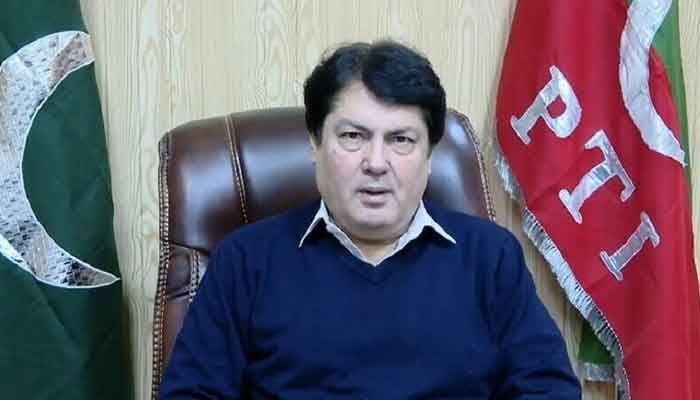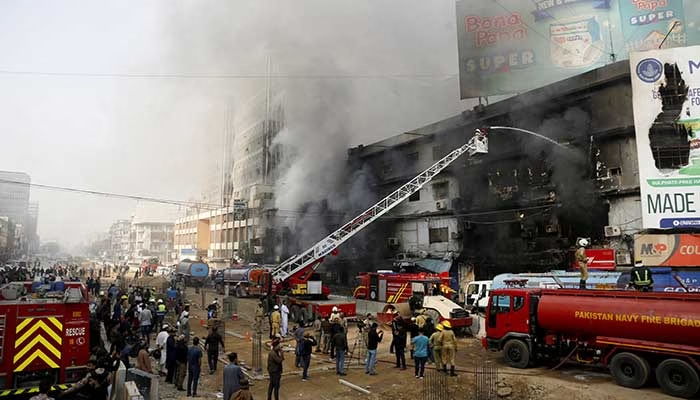Khyber Pakhtunkhwa’s Information Advisor, Barrister Mohammad Ali Saif, has launched a scathing critique of the federal government’s handling of electricity supply, particularly during the recent Eid celebrations. Despite the closure of offices, factories, and markets during the three-day holiday, KP continued to suffer from illegal load shedding, exacerbating public frustration and highlighting long-standing grievances over unpaid electricity arrears.
Persistent Load Shedding Despite Eid Holiday
In a recent statement, Barrister Saif expressed his dismay at the ongoing electricity shortages, emphasizing that even during the Eid holidays, the federal government failed to provide consistent power. “Offices, factories, and markets are closed on Eid, but still, illegal load shedding continues in Khyber Pakhtunkhwa. Patience has been exhausted,” Saif remarked, underscoring the growing exasperation among KP’s residents.
Unpaid Electricity Arrears and Federal Neglect
One of the primary points of contention is the substantial unpaid electricity arrears owed to KP by the federal government. Saif highlighted that these arrears have now exceeded 1500 billion rupees, accusing the federal administration of neglecting their financial obligations. “The electricity arrears of more than 1500 billion rupees of the province are not being paid. The cruel policies of the federal government towards the people of Khyber Pakhtunkhwa should end,” he asserted.
Critique of Federal Policies and Corruption
Saif did not mince words in criticizing the federal government’s broader policies and alleged corruption. He accused the ruling authorities of repeatedly assuming power without addressing the fundamental issues plaguing the electricity system. “The corrupt group took many turns of power but did not fix the electricity system,” he said. Saif further lambasted officials for their alleged comfort and detachment from the hardships faced by the populace, stating, “Those with fake Form 47 are sitting in cold rooms and watching the spectacle; they don’t care about the people.”
Historical Context and Ongoing Struggles
The issue of load shedding and unpaid electricity dues has been a long-standing source of friction between KP and the federal government. The persistent electricity shortages have not only disrupted daily life but have also had severe economic repercussions, hindering industrial and commercial activities in the province.
The accusations of using fake Form 47 documents add another layer of complexity to the issue. Form 47, a document used in the electoral process, has been mentioned here to imply fraudulent activities by the federal authorities. Saif’s remarks suggest a broader narrative of systemic corruption and inefficiency that he believes is at the root of the current electricity woes.
Public Sentiment and Political Reactions
The continued load shedding during a major holiday like Eid has intensified public anger. Residents of KP have long endured erratic power supplies, and the failure to ensure uninterrupted electricity even during Eid has only deepened their dissatisfaction. Public protests and demands for accountability are becoming more frequent as patience wears thin.
Politically, Saif’s statements reflect a growing rift between KP’s provincial leadership and the federal government. This tension is likely to influence the political landscape, with calls for greater provincial autonomy and better management of local resources gaining momentum.
Future Prospects and Possible Solutions
Addressing these issues will require concerted efforts from both the federal and provincial governments. Resolving the arrears dispute is crucial, as it directly impacts the financial stability and development prospects of KP. Additionally, there needs to be a transparent and comprehensive plan to overhaul the electricity system, ensuring that the infrastructure can meet the demands of the population.
The federal government must also address the allegations of corruption and inefficiency, possibly through independent audits and reforms aimed at improving governance and accountability. Engaging in constructive dialogue with KP’s leadership could pave the way for more collaborative and effective solutions.
The continued load shedding during Eid and the substantial unpaid electricity arrears highlight deep-seated issues between Khyber Pakhtunkhwa and the federal government. Barrister Mohammad Ali Saif’s sharp criticism reflects the frustration and anger felt by many in the province. Resolving these issues will require transparency, accountability, and a genuine commitment to addressing the needs of KP’s residents. As the political and public pressure mounts, it remains to be seen how the federal government will respond to these pressing challenges.



